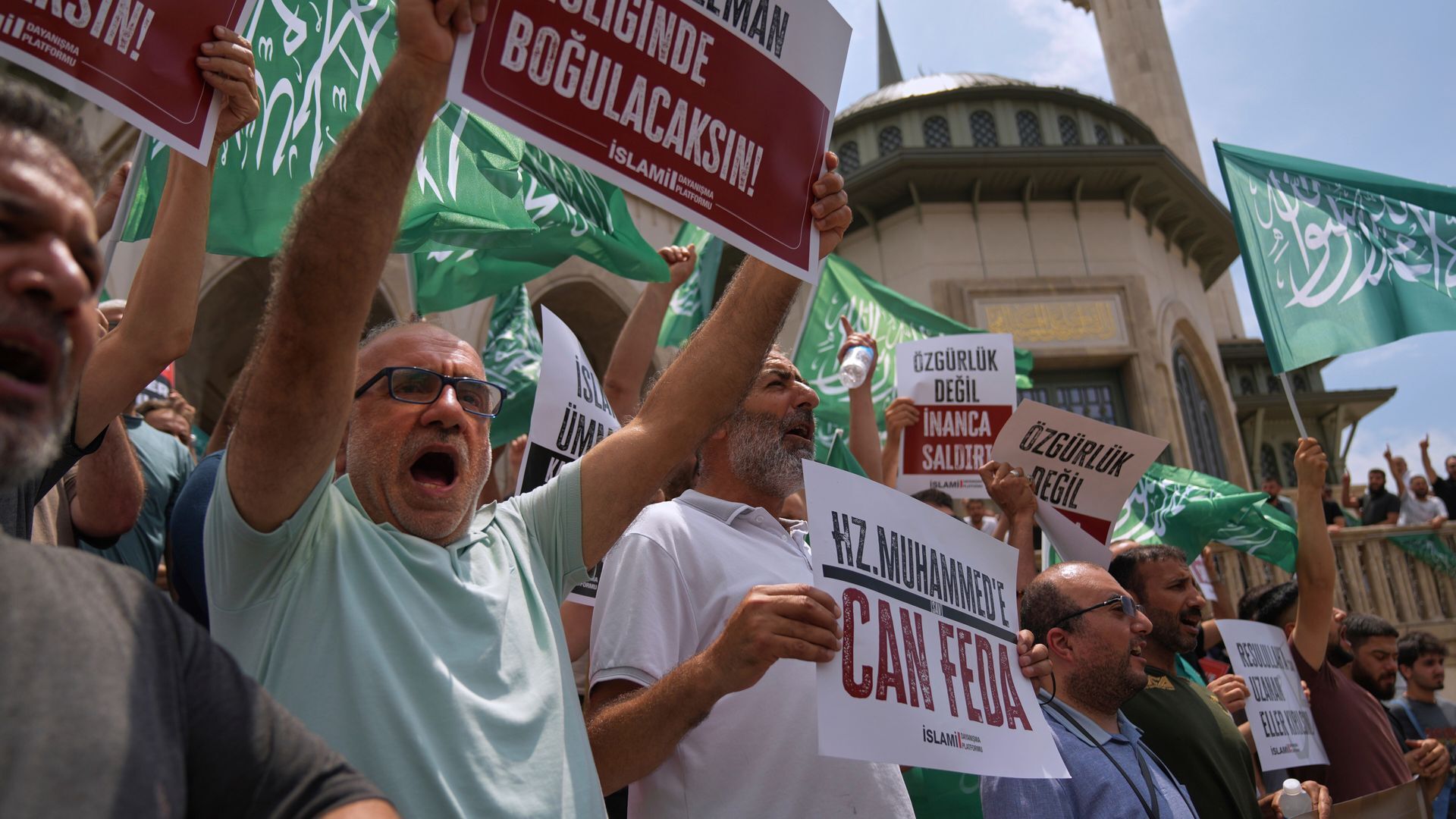The Turkish government is taking action against those it accuses of depicting the Prophet Muhammad as a cartoon in a satirical magazine. Turkey’s president called the cartoon a “vile provocation” and promised to hold those responsible for its publication “accountable before the law.”
Protesters surround magazine’s main office
President Recep Tayyip Erdogan’s remarks followed protests in Istanbul on Monday, June 30, over the cartoon, which is believed to be the Prophet Muhammad and Moses exchanging a handshake over a bomb-riddled city, referencing Israel’s conflict with Iran.
Riot police released tear gas and fired rubber bullets at protesters. Hundreds were staged outside of LeMan, the magazine at the center of the controversy, headquartered in Istanbul. Police said some in the crowd were armed with sticks and rocks.
Erdogan and other Turkish officials react
The image was published in LeMan’s Thursday, June 26, issue, and quickly drew criticism on social media, where many users claimed the publication was making fun of Islamic beliefs.
At a party meeting on Tuesday, July 1, Erdogan said it was a “vile provocation, disguised as humor.” He added, “Those who are insolent towards our Prophet and other prophets will be held accountable for this before the law. We will be following up on this.”
Erdogan’s comments came after Turkey’s justice minister, Yilmaz Tunc, announced Monday that a probe had been launched into the matter, in accordance with a law against publicly insulting religious principles.
“No freedom allows mocking a religion’s sacred values in such an offensive manner,” Tunc said.
Cartoonist arrested
The cartoonist responsible for the drawing has been taken into custody, and arrest warrants have been issued for the magazine’s two chief editors as well as the managing editor, according to Turkey’s interior minister, Ali Yerlikaya.
Yerlikaya called the caricature “despicable” and vowed, “These shameless people will be held accountable before the law.” The interior minister also shared videos of men being physically taken from their homes and forced into vans by authorities.
A federal court in Istanbul has blocked access to the magazine’s website and X following the backlash. Government officials have also pulled the issue containing the cartoon from circulation.
Chief editor and magazine denies accusations
One of LeMan’s chief editors, Tuncay Akgun, who is in Paris, said the anger is misguided, and that the cartoon is “not a caricature of Prophet Muhammad.”
“In this work, the name of a muslim who was killed in the bombardments [by] Israel is fictionalized as Muhammad. More than 200 million people in the Islamic world are named Muhammad,” said Akgun. He added that the cartoon had “nothing to do with Prophet Muhammad.”
In a statement shared on social media, LeMan denied accusations that the cartoon was “anti-Muslim” and apologized to readers who were offended, stating that the cartoon had been misinterpreted.
“The cartoonist here wanted to portray the righteousness of the oppressed Muslim people, by depicting a Muslim killed by Israel, and he never intended to denigrate religious values,” the statement read. “We apologize to our well-intentioned readers who we think were subjected to provocations.”
Turkey’s track record with freedom of the press
Traditional Islamic values widely advise against depicting the Prophet Muhammad as it is meant to preserve the purity of his image and prevent idolatry.
Turkey has a history of punishing publications legally for satirical content and has a poor track record when it comes to freedom of expression and press freedom.
